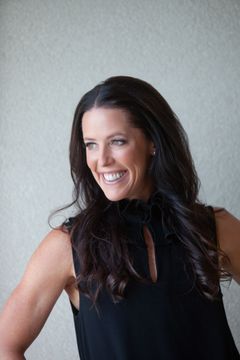2020 was hard. Our typical means for training, teaching and coaching our clients changed dramatically. In-person options were shuttered for months on end, our ability to connect became fragmented and our face-to-face interactions all but eliminated. While many of us pivoted to embrace the new normal with online options and outdoor workouts, we still were left to question how or if our businesses would bounce back.
Here we are in 2021, but in many ways, it feels like 2020: The Sequel. Even though many of the constraints and complications remain, one thing has changed dramatically. The world needs you now more than ever; the volume has been turned up on the health and wellness conversation, and no one can escape the storyline. Here are three reasons I believe the world needs you now more than ever.
We Are Suffering
Collectively, we are all suffering mentally. While stay-at-home orders, limited contact with others outside your “bubble,” and similar isolating behaviors have been necessary to slow the spread of COVID-19, they have taken a toll on all of us mentally. Add to this the stress over employment, finances, health and well-being, and many are suffering like never before. According to a survey conducted by the Centers for Disease Control and Prevention, the number of American adults experiencing or exhibiting anxiety disorder symptoms and/or depressive disorder has quadrupled since before the pandemic.
As someone who has dedicated your life to studying and teaching the benefits of exercise, you know the tremendous impact it can have on a person’s mental state. Exercise works to calm our nervous system and can help combat depression and anxiety. Moving your body enables you to deal with stress and manage your emotions. It can also help clear brain fog, increase energy and concentration, amplify motivation and willpower, and provide feelings of hope and perspective. As more people begin to move their bodies or experiment with exercise, they will start to make this connection and want more of it.
We Learned the Truth
The global pandemic exposed another secret many of us have known all along: exercise is medicine. Obesity has been listed as a modifiable risk factor for severe illness from the virus that causes COVID-19. Diabetes, heart failure, coronary heart disease, and chronic lung conditions (e.g., chronic obstructive pulmonary disease, or COPD) are also listed as risk factors or factors that may increase the severity of this illness. Boosting your immune system has continued to be a rallying cry in the last year, and exercise is proven to improve or help control all of the above. Reporting continues to link exercise to COVID-19 prevention, as well as a way to lessen the severity should you end up with the illness.
While we have always promoted the fact that exercise can help control weight, mitigate many health issues and improve the ability to fight off illness, it sometimes landed on deaf ears. The challenge was convincing people to do the work to prevent something that might happen sometime in the distant future. Now, the need is acute—COVID-19 is right in front of them. More people are willing to try this “antidote” and when positive results occur, this validation leads to more of this newfound behavior.
We Need Help
People know they need to get moving, and they likely always have. The volume of research, the sheer number of soundbites, all of the work health and exercise professionals have put out there in the past year and years before, combined with fitness companies advocating for clubs to open to combat COVID-19, have amplified interest.
Unfortunately, fewer people are moving now than ever before, but you have the power to help change that by:
- Increasing access to exercise by meeting people outside, online and in any other creative way you can despite what your preferred method might be.
- Redefining and demystifying exercise by validating all the ways a client might find joy in movement, whether it be walking, lifting weights, following a training plan, combining lots of different platforms and programs, or cueing up their favorite music and moving their body in the kitchen while making dinner.
- Putting the pieces (back) together by looking at what they used to do, can do and won't do and customizing a plan that will work for the long-term.
You are a confident and compassionate professional who knows a lot about moving the body and how to get people to do it regularly. The world is ready...are you?




 by
by 









